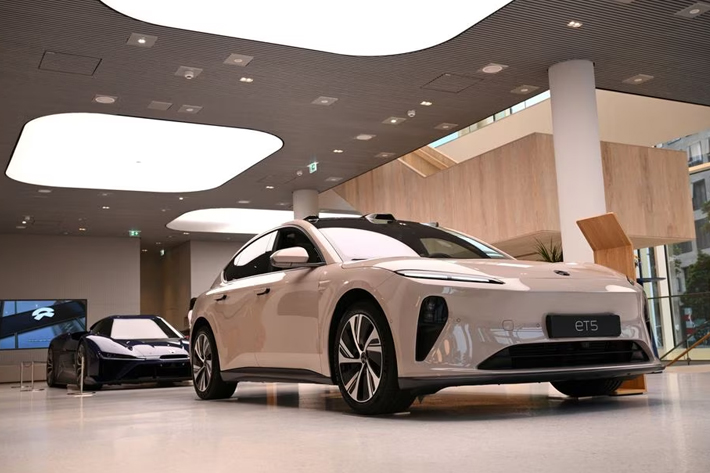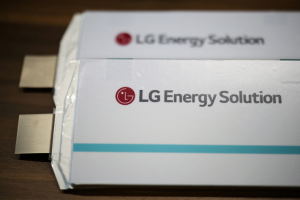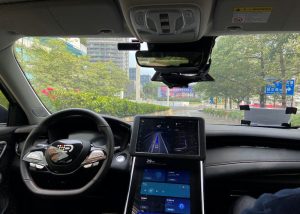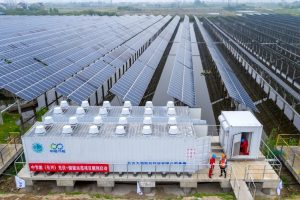The European Union is on track to put in force its planned tariffs on electric vehicles imported from China, despite pushback from major automakers and some key bloc members.
As EU members vote tomorrow on tariffs of up to 45% on China-made EVs, France, Greece, Italy and Poland are set to vote in favour of the trade measure, Reuters has reported, citing sources.
That would mean Brussels will have enough votes to push through its highest profile trade measures.
Also on AF: BYD, Li Auto, XPeng Sell Record Numbers of EVs in September
Under EU rules, the European Commission can impose the tariffs unless a qualified majority of 15 EU countries representing 65% of the bloc’s population votes against the plan.
But together France, Greece, Italy and Poland represent 39% of the EU population.
The EU’s tariffs come on the back of an anti-subsidy investigation it began last year into EVs made in China. In March, it said it had found “sufficient evidence” to support its claim. Countries like the US and Canada have also voiced similar concerns and imposed tariffs as high as 100% on Chinese EV imports.
China, meanwhile, has denied boosting its EV industry with state funds. But according to a study by US-based Center for Strategic and International Studies, Beijing has doled $230.9 billion worth of support for EV manufacturing between 2009 and 2023.
Voicing support for EU’s levies on Wednesday, French president Emmanuel Macron said the level of Chinese subsidies was “unbearable”.
“Broadly we have to protect the level playing field in all the different sectors of our industry,” he said in Berlin.
Similarly, the Czech industry and trade ministry said it took seriously the Commission’s conclusions about “China’s unfair practices” and noted that the US, Canada, Turkey and Brazil had already taken action.
It declined to say how it would vote.
Not all in favour
Despite the political fervour in favour of the tariffs, the EU’s auto industry has generally opposed tariffs.
Volkswagen, for instance, has called on Germany to vote against the tariffs, arguing that the measure will not improve the competitiveness of the auto industry.
“The proposed tariffs are the wrong approach,” a spokesperson said in a statement on Wednesday.
VW is one of several German automakers — including BMW and Mercedes — that have opposed the tariffs. German carmakers rely on China for almost a third of their sales.
While it remains unclear how Germany will vote, Chancellor Olaf Scholz voiced his opposition to their implementation, saying negotiations with China on electric vehicles must continue.
“More trade with more partners from more countries – that’s what sensible risk management looks like in an uncertain world,” Scholz said.
Meanwhile, German Finance Minister Christian Lindner said: “A trade war with China would do us more harm than good.”
Hungary, another critic of the planned tariffs, announced on Thursday it would veto the EU proposal. Hungarian Foreign Minister Peter Szijjarto said the plan is “harmful and dangerous”.
The position of Spain, a previous backer of tariffs, also remains unclear after Prime Minister Pedro Sanchez said on a visit to China in September that the EU should reconsider its position.
View this post on Instagram
What’s ahead?
Once the tariffs pass, they will apply for the next five years. Chinese carmakers will also have to pay up provisional duties dating back to July.
They will also have to decide whether to absorb the added costs from the levies or raise their prices to cover the billions of dollars in new costs.
The prospect of duties has spurred some Chinese automakers to look to invest in factories in Europe, despite higher labour and manufacturing costs. Many have also said the EU probe is forcing them to reconsider their European investment plans.
EU, meanwhile, has said it is prepared to continue negotiations with China even after the vote.
One option under negotiation is minimum import prices calculated using criteria such as the range, battery performance and length of the electric vehicle, along with whether it is two- or four-wheel drive, a source familiar with the matter said.
An alternative is a commitment to investment in the EU, with quotas for a transitional period.
- Reuters, with additional editing by Vishakha Saxena
Also read:
Chinese Carmakers Call For 25% Retaliatory Tariffs on EU Cars
Stellantis CEO Calls China EV Tariffs a ‘Trap’. He May Be Right
China EV Firms Scaling Back European Plans Over Subsidy Probe
European Farmers Fear Trade War With China Over EV Tariffs
EU Tariff Fallout: China Warns of WTO Suit, Tesla to Hike Prices
In U-Turn, Elon Musk Says US Tariffs on Chinese EVs ‘Not Good’
China’s BYD Welcome to Open an EV Factory in France: Minister
As EU Eyes Tariffs, European States Chase China EV Factories
US, EU Firms’ Profits, Confidence in China Continue to Sink























